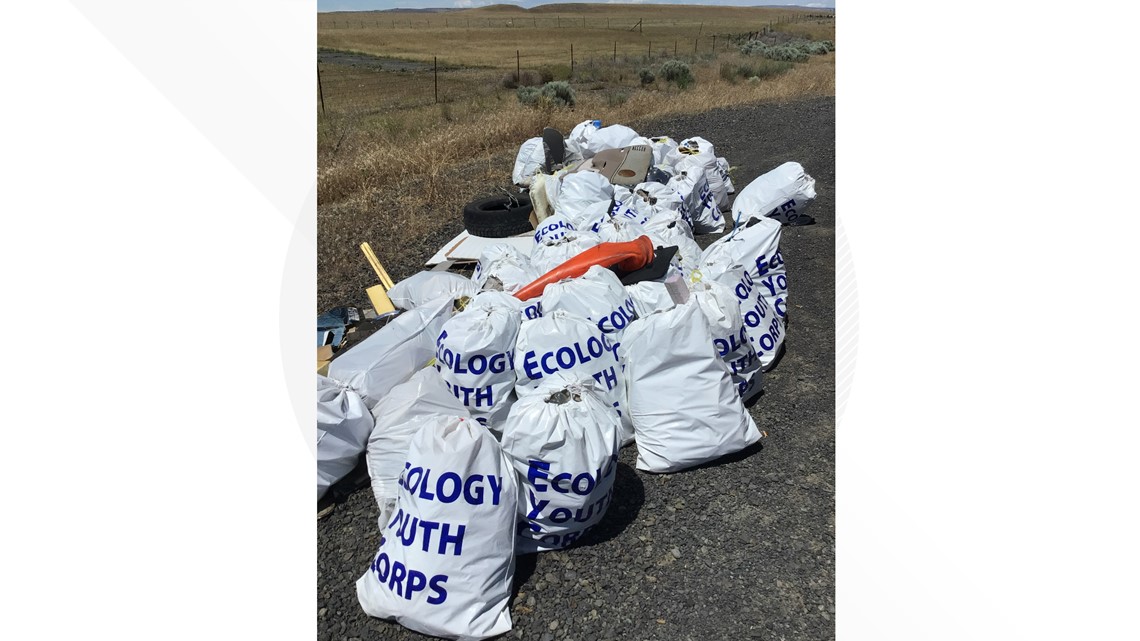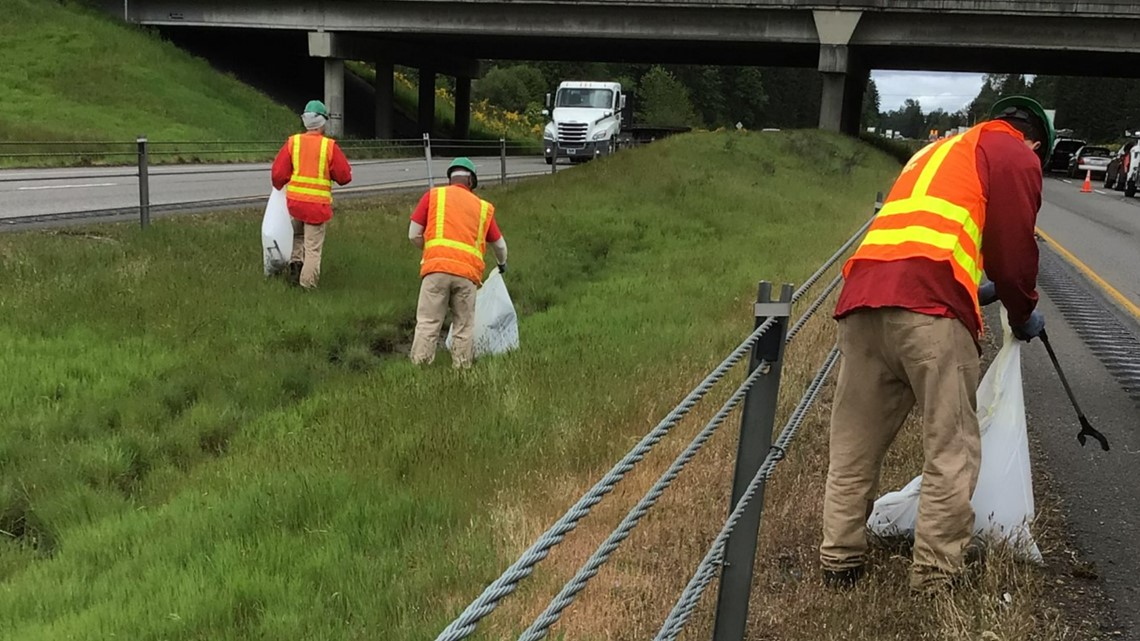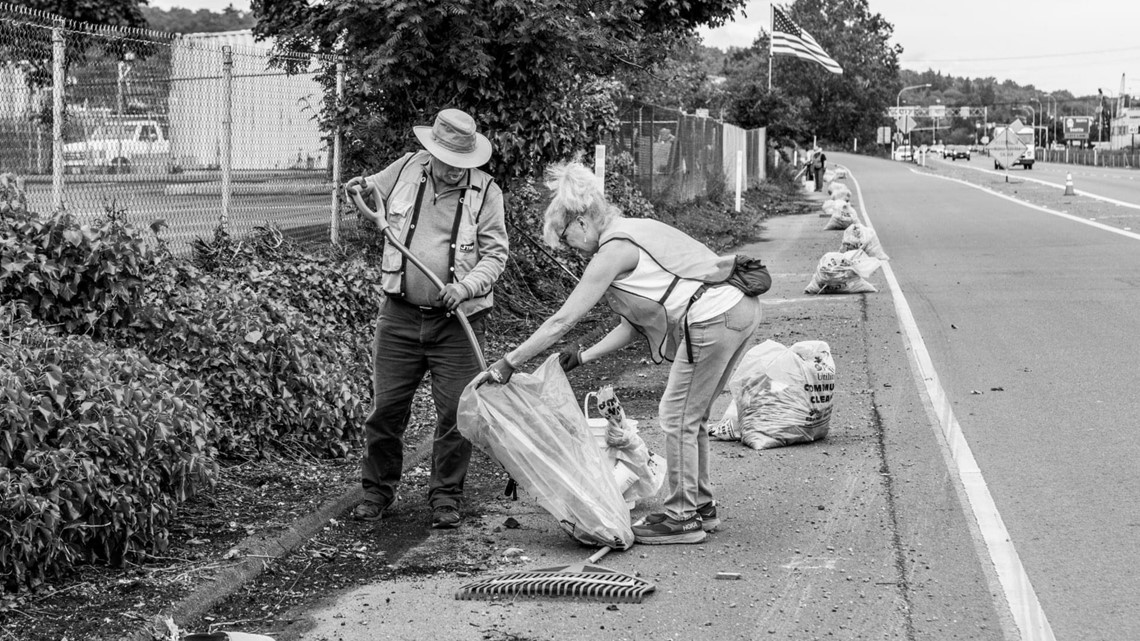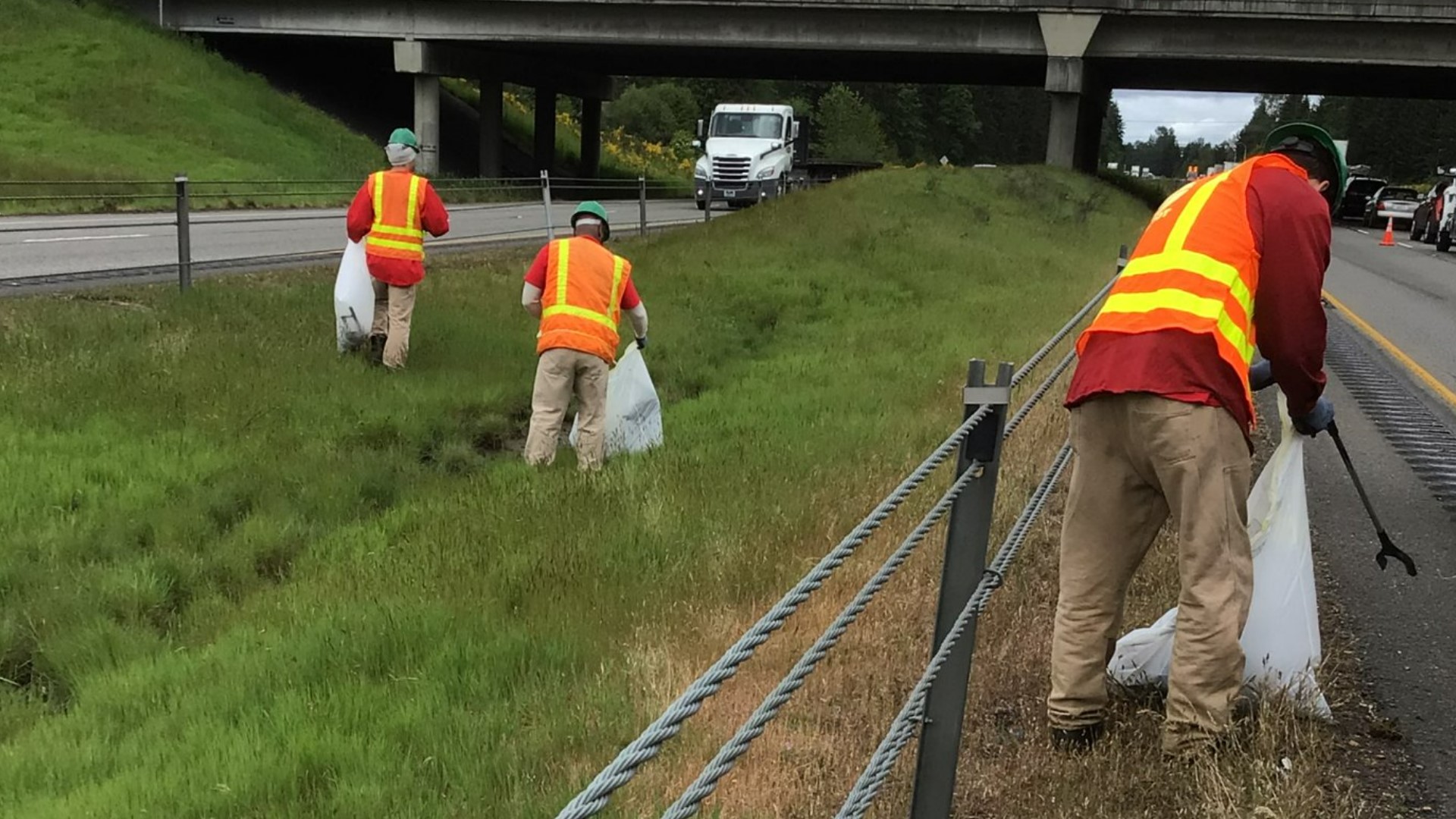SEATTLE — Parts of western Washington have a bad litter problem and the state said it has only gotten worse during the COVID-19 pandemic because litter pickup operations were impacted.
It’s a noticeable problem for residents. So much so that viewer Pat, who lives in Seattle, emailed our Verify team to find out who is responsible for cleaning the litter up. She called it an “embarrassing” problem for “our beautiful city.”
THE QUESTION
“I cannot get an answer to who is responsible for cleaning debris from our highways, particularly our city exit/entrance ramps. Trash has been continually piling up for months/years. I did hear that this work used to be performed by inmates, but that program has been suspended. Is this true?”
THE SOURCES
- Washington State Department of Ecology
- Washington State Department of Transportation
- Washington State Department of Corrections
THE ANSWER
Yes, the program where incarcerated people pick up litter was on pause but is going again. Who is responsible for picking up the litter though depends on where it is.
WHAT WE FOUND
The Department of Ecology, Department of Transportation (WSDOT) and Department of Corrections (DOC) said the program was on a temporary pause but resumed in May 2022.
“It was a temporary pause for a short period of time while some logistics were worked out, in terms of contracting, and then COVID delayed everything,” said Amber Smith, the statewide litter prevention coordinator with Ecology.
“They’ve always been a very strong partner in our litter pickup program statewide,” she continued.
Smith said they’ve partnered with the DOC crews for more than 20 years.
Ecology works with WSDOT to clean up highways and interstates. They say they’ve picked up over 2 million pounds of litter so far this year.
“We can’t keep up,” Smith said. “It’s a staggering amount of litter out there, unfortunately.”


About half of the litter along the roads comes from not properly tying down stuff in the back of trucks or trailers, Smith said.
“A big chunk, maybe close to half, 50%, comes from unsecured loads,” Smith said.
She said it’s also from people deliberately tossing things out the window.
“We have a huge litter problem,” said Smith.
Ecology said it spends more than $9 million a year on litter pickup and are slowly getting more funding. It gives some of that money to cities to clean up other roads.
We reached out to the Seattle Department of Transportation (SDOT) and the City of Seattle to ask what programs they have.
The city of Seattle had a partnership with Seattle’s Municipal Court’s Community Service Team, but it is no longer an active program, according to SDOT.
SDOT said it does have the Clean City Initiative. According to info on the website, in June 2022, they picked up more than 671,000 pieces of trash and more than 46,000 needles. It said City of Seattle employees and contractors are responsible for cleaning up trash and litter around town.
To help with the ongoing problem, starting this week, Ecology will contract with a new team that will focus on litter pickup in high-priority areas and areas that are tough to clean, such as medians and on- and off-ramps.
“Some of these medians haven’t been cleaned in years," Smith said. "This will be a huge visual impact in a very short period of time."


Some of the high-priority areas include stretches of Interstate 5, Interstate 405, Interstate 90, Highway 167, Highway 512, Highway 509, Highway 16 and Highway 18, among others.
“Most of those high-priority areas that we’ve identified will get cleaned monthly. Some of them are on a bimonthly cleaning schedule but most of them are monthly, which is very exciting,” said Smith.
In addition to the DOC crew program, Ecology has other programs to help, such as the Ecology Youth Corps and the Adopt a Highway volunteer program.


Ecology said it is really trying to talk to people about litter prevention after it did a study on litter this year.
“We have some early results from that litter study that are showing we have more than 24,000 pieces of litter per mile on our urban interstates and over 31,000 pieces per acre on our urban interchanges,” said Smith.
Ecology started a new campaign called “Not Littering … Simple As That.” It runs through Oct. 1 and during that time, people can get free reusable car litter bags from Fred Meyer stores.
“The beauty of our state, the success of this campaign, really depends on people doing their part and choosing to not litter,” Smith said.
If you have something you want us to verify, send us an email at verify@king5.com.

